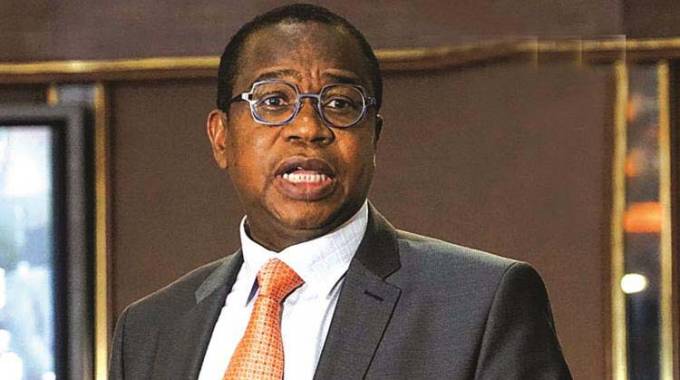
The Sunday Mail

Lincoln Towindo
Parliament
FINANCE and Economic Development Minister Professor Mthuli Ncube needed to be at his frugal-best when he was crafting the 2021 National Budget.
Funding requests to Treasury for the 2021 financial year stood at a staggering $1,1 trillion, which is just short of the size of the country’s economy.
Consequently, Prof Ncube had to exercise extreme parsimony in allocating resources to ensure everyone, at least, got a slice of the cake.
He pronounced as much during Parliament’s pre-budget seminar, where he emphasised the importance of impact over input in budgeting with limited fiscal room.
“What is important to note is that we have a limited budget, which is constrained by what we can collect through taxes and what we can borrow from the market without destabilising the economy,” Prof Ncube told the seminar.
“Therefore, while it is desirable to allocate resources to almost all areas as highlighted during this seminar, it is not easy.
“I added up all the requests from all ministries and departments; the requests amount to $1,1 trillion, while the Gross Domestic Product (GDP) of Zimbabwe right now in 2020 is just over $1,1 trillion.
“So the Budget requests and the size of the economy are almost equal.
“Quite clearly there lies the constraint, you can never outpace your own GDP size in terms of revenues you can raise.
“There is always a ceiling that is dictated by your ability to collect taxes and ability to pay.”
In the end, Prof Ncube had to settle for a $421 billion Budget, meaning all recipients had to accept the reality of allocations lower than their initial requests.
Parliament was one institution that was worst affected by Prof Ncube’s apparent pennywise interventions.
Treasury proposed a $7,1 billion vote for Parliament, against a request of around $14,9 billion for the financial year.
Parliament had asked for $10,1 billion to cover legislative and oversight operations, while $4,8 billion was required for policy and administration purposes.
Expectedly, National Assembly Speaker Advocate Jacob Mudenda was not entirely enamoured by the derisory allocation.
Speaking at last week’s post-Budget seminar, Adv Mudenda warned that the allocation could compromise Parliament’s oversight role.
He said next year’s allocation had declined sharply by around 28 percent to US$89 million from an equivalent allocation of US$124 million for this year.
“I want us all to reflect back and take note of our deliberations during the past few years where, as Parliament, we called for complete separation of budgetary allocations within the different organs of Government so as not to compromise the oversight role of Parliament,” said Adv Mudenda.
“In other jurisdictions, Parliament’s budget is not even debated or amended.
“It is just adopted as it is.
“Therefore, in order for Parliament as an oversight institution to accomplish its mandate effectively and efficiently during the year 2021 going forward, it is crucial that it be adequately funded so that it is able to fulfil its Constitutional mandate consummately.”
Deputy president of the Senate General Mike Nyambuya (Rtd) had echoed Adv Mudenda’s observations prior to the Budget presentation at the pre-budget seminar.
Gen Nyambuya (Rtd) outlined how the continually shrinking allocations were affecting operations and the House’s ability to fulfil its Constitutional obligations.
Illustratively, he said Parliament’s bus fleet had aged to an extent that it was no longer fit for purpose.
The buses constantly break down, said Gen Nyambuya (Rtd).
“Buses for Parliament are in a really bad state,” he said.
“Transporting Members of Parliament all over the country to do their Constitutional obligations is now a challenge.
“We have had occasions where some buses have broken down in Mutare and Bulawayo while transporting MPs.
“I know you are listening Minister of Finance and I ask that this issue of buses be attended to in the coming financial year.”
Parliament deserves
a bigger slice
Funding of Parliament is a crucial ingredient for engendering democracy, transparency and accountability.
Underfunding Parliament cripples a key arm of the State and this could undermine the country’s democratic credentials.
It puts the House in an invidious
position of having to depend on supplementary funding from development partners, some of whom may harbour nefarious intentions.
This is not to imply that partnerships with development partners and other technically accomplished civic organisations are intrinsically bad. No.
In fact, these relationships should be encouraged largely in the areas of exchange of technical know-how, but financing should largely be the responsibility of Government.
After all, there is a saying that imparts on us the teaching of who is in control of the tune after the piper is paid.
Which is why Adv Mudenda’s proposal to separate Parliament’s budgetary allocations from the rest of Government obliges support.
He wants to stop Treasury from amending Parliament’s funding requests, a proposal which should be strongly considered, albeit, resources permitting.
Needless to say, adequate funding strengthens the institution of Parliament in undertaking oversight, legislation and representation as per its Constitutional mandate.
Parliament had requested for funding for programmes based on a 90-day sitting calendar that include holding at least 30 meetings per committee, conducting three field visits per committee, three public hearings on Bills and petitions and three capacity building workshops.
The House also requested a minimum of $2 million dollars for each constituency under the Constituency Development Fund.
Given the extensive cuts to the final budgetary allocations, it now looks implausible that Parliament will be able to undertake these activities, which are all key in strengthening Parliament.
As a result, because of the funding cuts, we are left with a weakened Parliament, one that is unable to conduct key Constitutional duties that further our democratic standing.
Going forward, Treasury should strongly consider it fundamental to fund Parliament adequately even where resources are limited.
They should find a way around.
This should be done in the spirit of upholding the Second Republic’s commitment to strengthening our democratic credentials and involvement of citizens in matters of governance.



